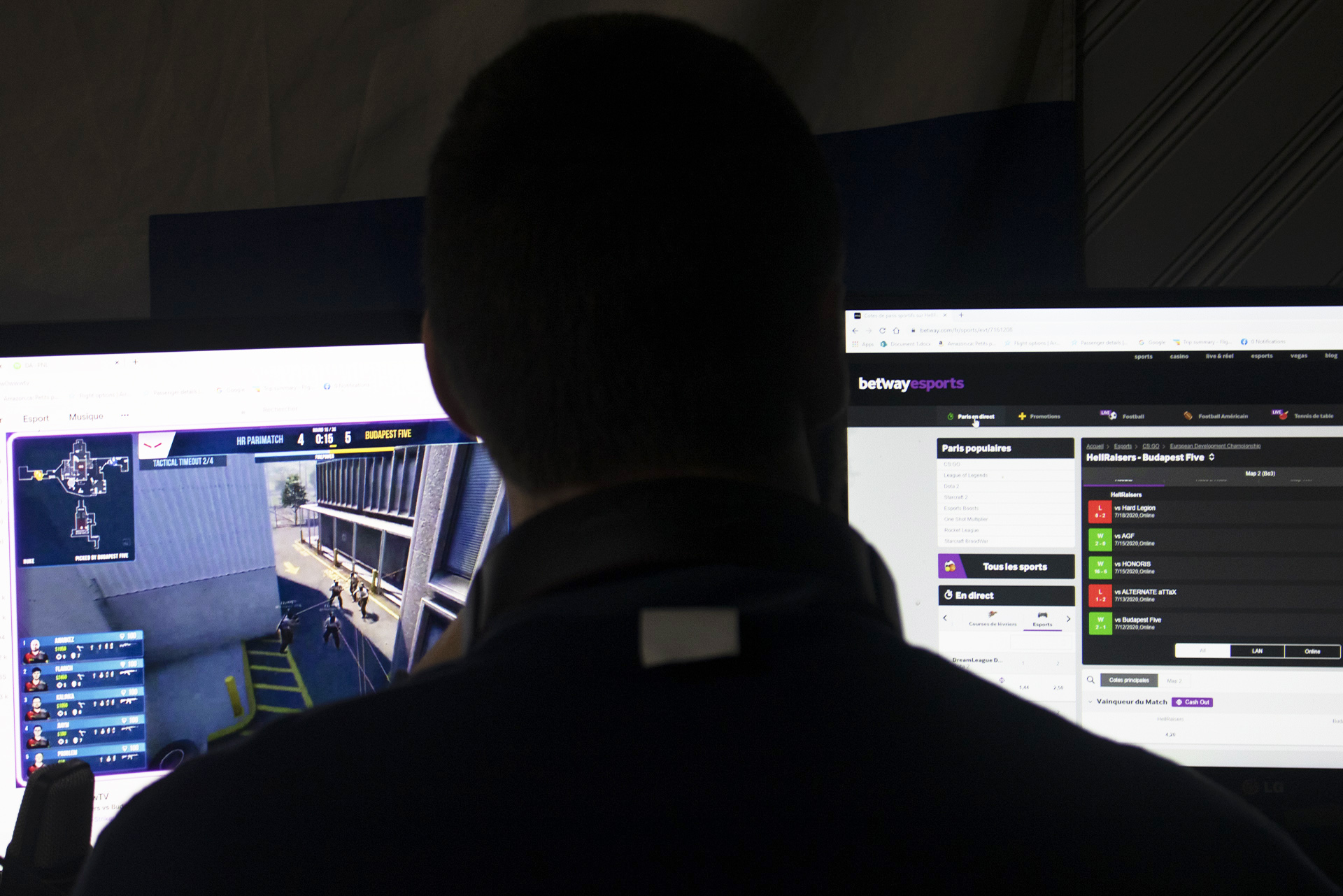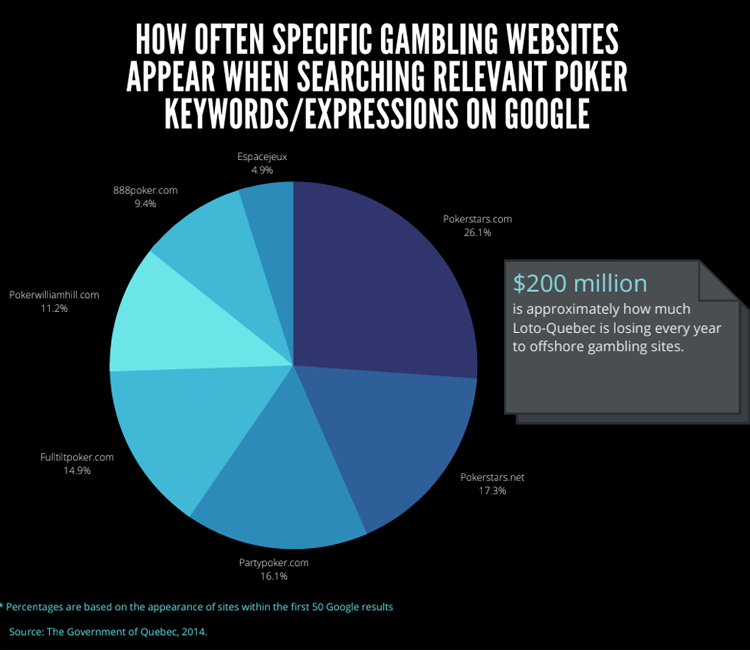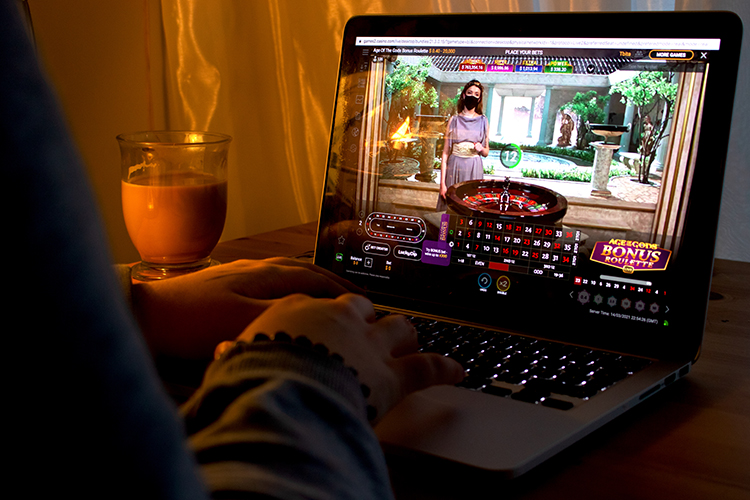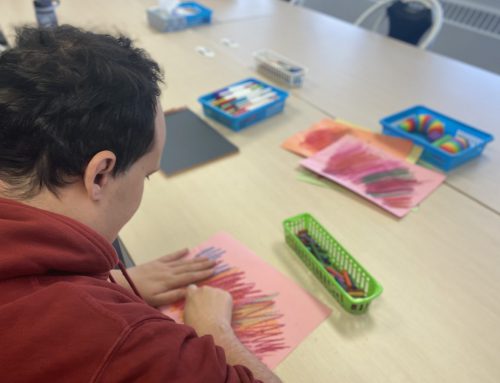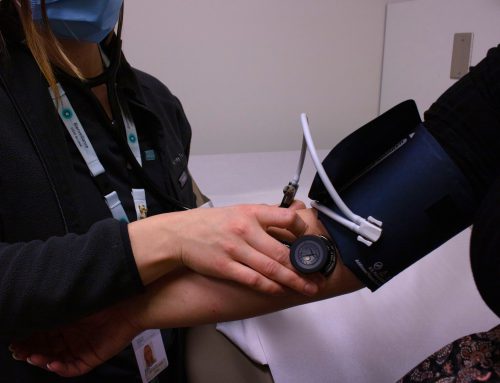BY Chahinez Dib
It was during the first COVID-19 lockdown when one of Alexandre Turgeon’s friends talked him into trying sports betting.
“I bet $200 the first time and I could not stop after that,” Turgeon says.
For Turgeon, 21, online gambling began in his mother’s basement, where he would spend his days and nights in a whole other world.
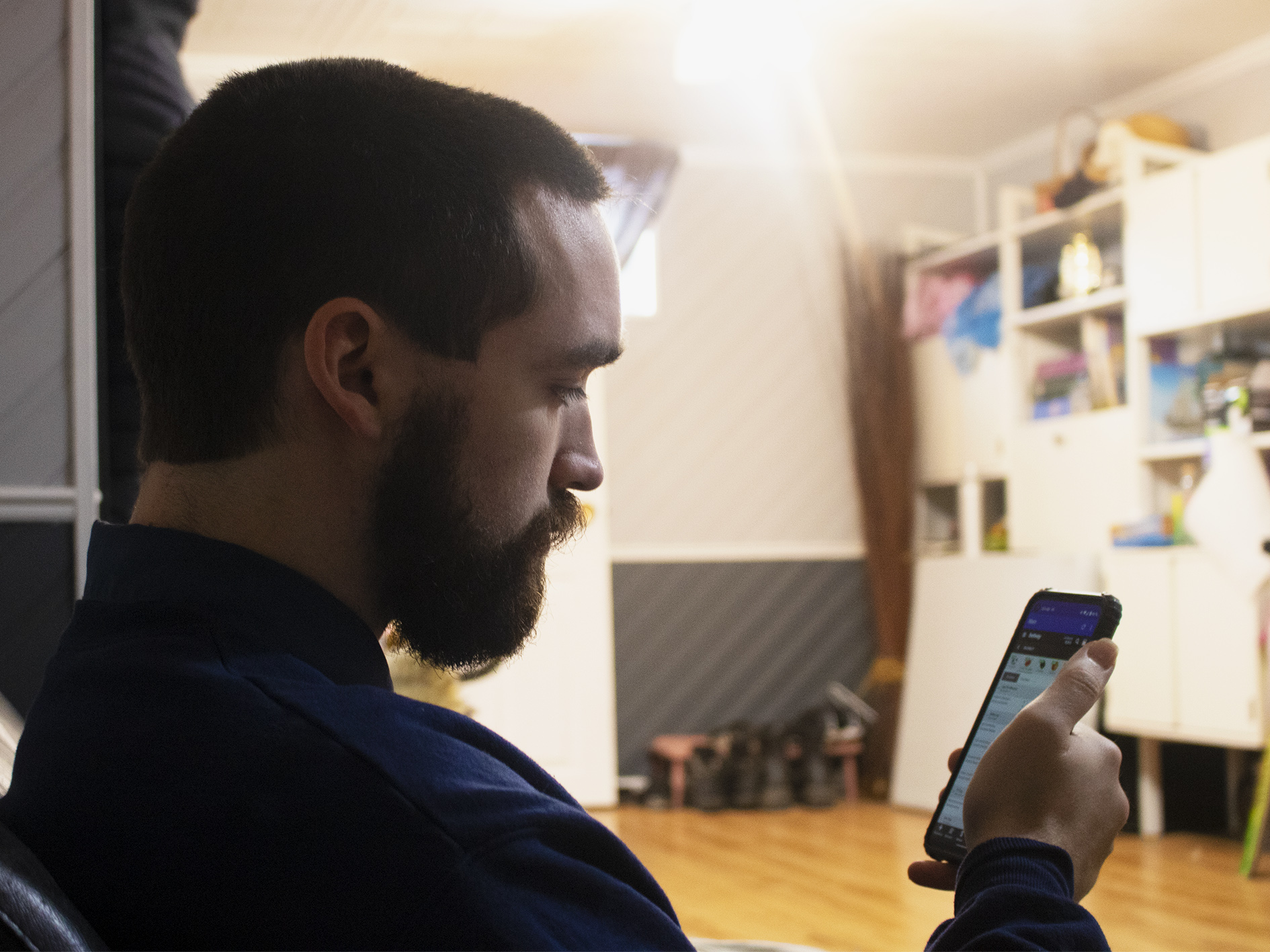
Alexandre Turgeon, 21, found comfort in online gambling after confinement regulations were put in place. Photo by Chahinez Dib.
Turgeon found himself trying to fill a void as he couldn’t socialize as he used to, due to pandemic restrictions. Betting on sports games online became his escape for almost a year. It was only in 2021 that he realized he may have gone too far and decided to stop betting.
“Since I couldn’t see my friends as much as I used to, I replaced it with betting. It would fill my days,” he adds.
Turgeon spent most of his time on Betway—an international online gambling company—betting on any type of sport. Through the site, gamblers can bet 24 hours a day on a soccer video game in Spain or a ping-pong game in Russia.
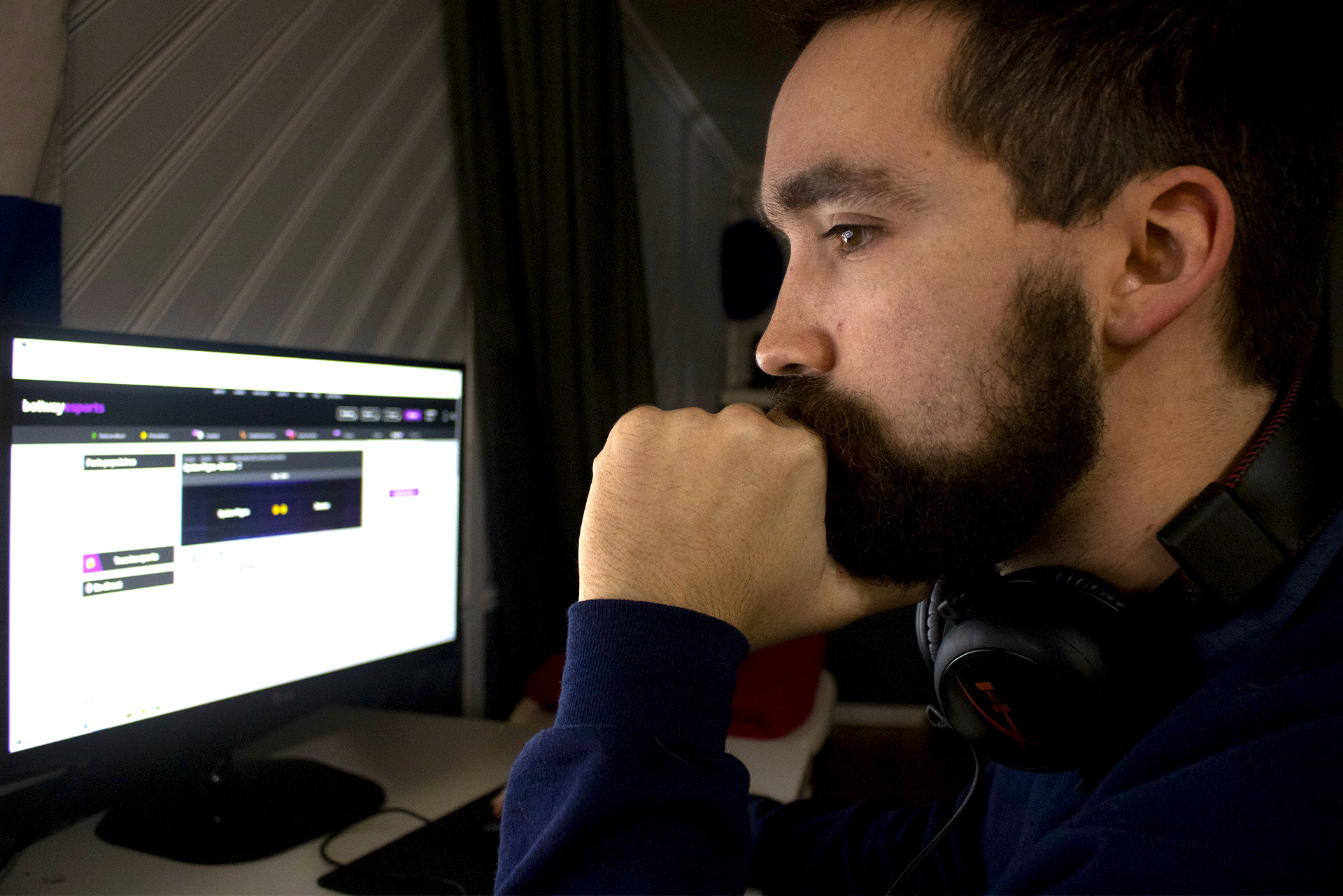
Turgeon stopped gambling in mid-January, but still visits Betway Sports to look at the bets. Photo by Chahinez Dib.
Sid V., who is part of the 12-step program at Gamblers Anonymous Montreal, says the adrenaline rush of gambling is a big appeal.
The 39-year-old father used to be a compulsive gambler, but has stopped for almost five years. He still remembers how exciting betting can be for gamblers, especially when there is more money involved.
“If I go gamble today, I would pick up where I was five years ago,’’ he says. “The bigger the amount is, the more the excitement is for me.”
Since the pandemic started, Sid has noticed a wider variety of people coming into the meetings, including young adults.
“I did see [since the start of the pandemic] an increase of a younger type of gambler shifting completely to only online. They never set a foot in a casino, they never set foot in a bar really,” he says.
People will often associate addictions with drugs or alcohol use, but not with money. But for compulsive gamblers, money is the most addictive substance. Video by Chahinez Dib.
Sylvia Kairouz, the Concordia University Research Chair on Gambling, is conducting a study in collaboration with other Montreal universities to understand the consequences of the pandemic on gambling habits.
Last July, Kairouz and her team published a report focused on the impacts the pandemic had on the gambling industry in different countries, including Canada.
The report mentions a migration from gambling operators to online platforms since the start of the pandemic. According to the report, an increase in online gambling revenues worldwide of more than 13 per cent was expected in 2020.
They are still collecting data to see the full impact the pandemic has had on the gambling industry in Quebec.
With the closures of casinos and lottery points of sale, several gambling operators have gone online, including Loto-Québec.
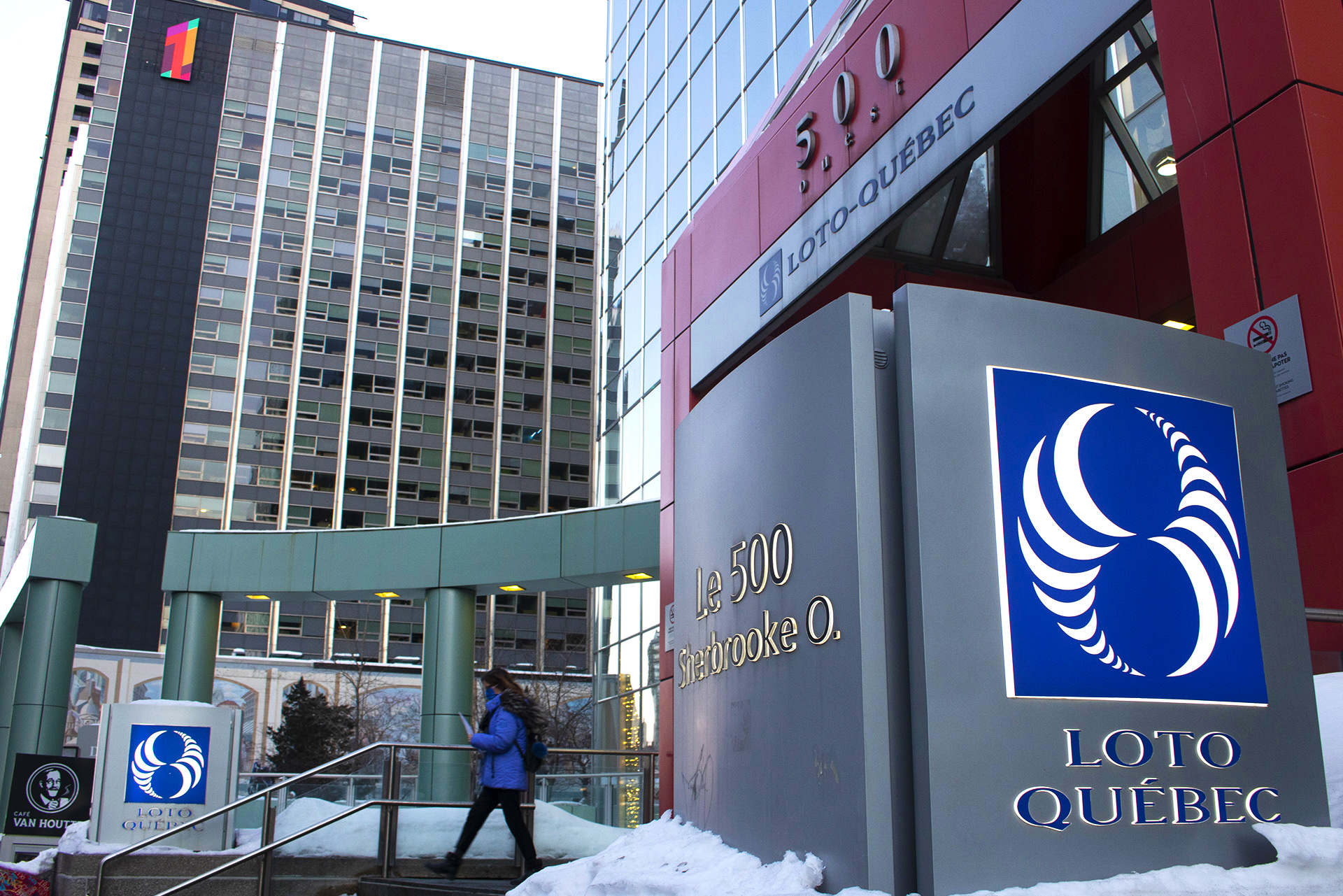
Loto-Quebec’s online casino revenues jumped 132 per cent in the first six months of 2020, reaching a record of nearly $106 million. Photo by Chahinez Dib.
“More money is going to get out from the pockets of the gamblers and be invested or spent in online gambling,” Kairouz says.
Kairouz explains that there has been an increase of 40 per cent in people buying lottery tickets online since the closure of casinos and lottery point of sales.
“We know for a fact that there’s been a migration in Quebec for lottery tickets. Citizens’ habits were to go to a dépanneur and buy the tickets,” Kairouz says. “Now, they can open an account on Loto-Québec and can start purchasing their lottery ticket online.”
Last March, Loto-Quebec closed its casinos and point of sales for a period of six weeks. As a result, much of their clientele turned to their website. In the first six months of 2020, Quebecers spent around $61 million on Loto-Quebec’s website.
However, the increase in online gambling was already happening before the pandemic started. In 2012, a Concordia University study estimated that only 1.5 per cent of people were gambling online in Quebec. That number more than tripled to 5.2 per cent in their last study published in 2018.
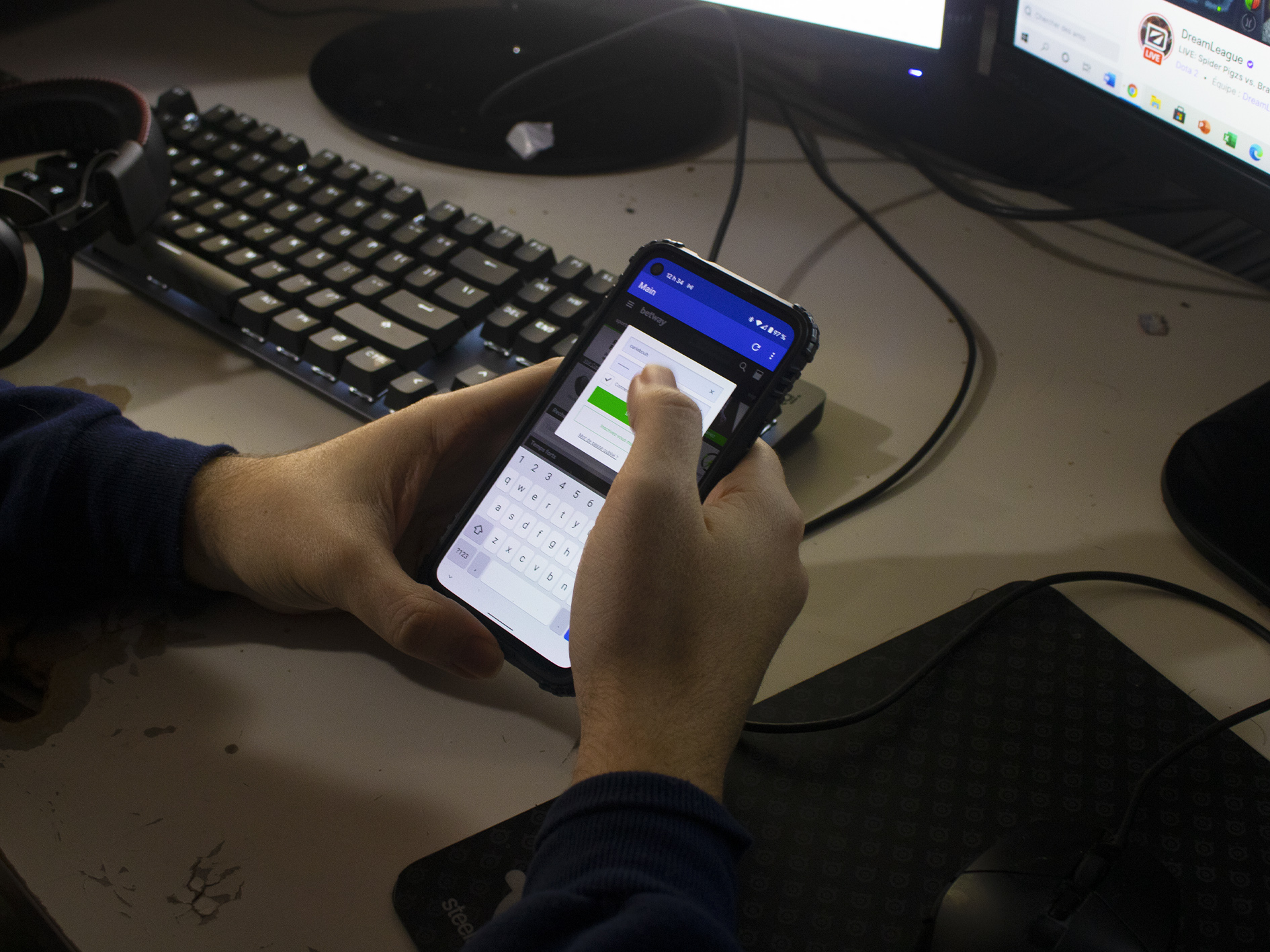
Kairouz points out that one advantage of gambling online is the easy accessibility. Photo by Chahinez Dib.
According to Abdelhaq Sari, Vice-Chair of Montreal’s Public Safety Commission, it would not be surprising if there is a significant increase in online gambling among youth.
“With the closures of restaurants, bars, nightclubs and gyms, young adults have more free time and this is the number one enemy,” Sari says.
With people more comfortable being online, Sari thinks online gambling can increase both on legal and illegal platforms.
“Did [online gambling] increase or not? We don’t know yet,” he adds. “But we can only conclude, with the observations we have on other phenomenon, that the opposite will be surprising.”
Kairouz also highlights the easy accessibility of online gambling platforms. Young adults are more tempted to play online rather than going to casinos.
“The trend might increase over time in terms of participation in online gambling,” she says. “But we cannot predict how things are going.”
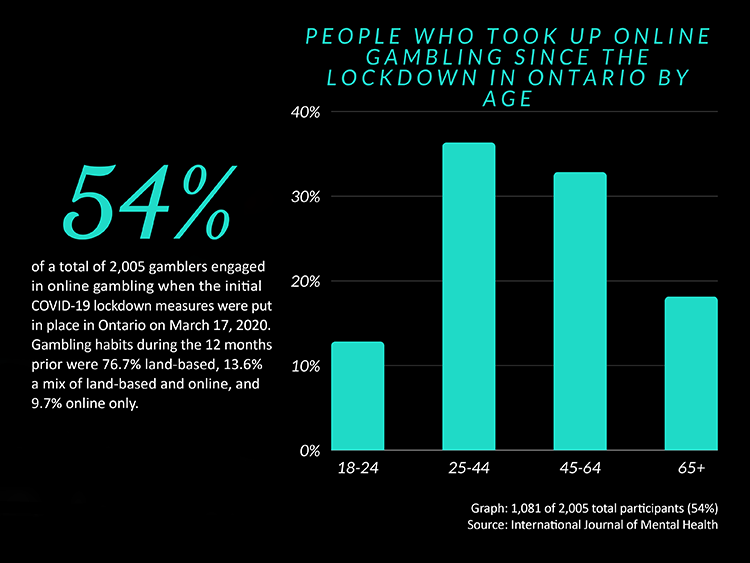
Younger adults and adults were more likely to gamble online than seniors among the participants in Ontario. Media by Chahinez Dib.
Another component that may have played a role in encouraging people to gamble is advertisements. In fact, the main operators that offer gambling platforms in Quebec intensified their advertising campaigns on social media in mid-March 2020 according to Kairouz.
“We can see peaks in how [the operators] launched their advertisement and those peaks seem to happen when there’s a critical point like adding new confinement measures,” Kairouz says.
For now, Kairouz and her team are still working on their upcoming study—which is supposed to come out later this year.
One prevailing hypothesis is that an increase in leisure time due to confinement is pushing people towards online gambling.
“We expect through this hypothesis that maybe there are new people, who didn’t gamble before at all, that started gambling online. Or they used to gamble offline and now their only opportunity is to gamble online,” Kairouz says. “This is what we’re trying to understand.”
For her, it is important to start thinking about effective prevention measures. Such measures used to be geared towards casinos or other physical locations.
In casinos, they have people who are trained to intervene if they see someone losing control. They also have a self-exclusion list—where problem gamblers enroll and are supposed to be barred from entering the casino. But since everything has gone online, such measures can’t be used.
“We need to think about solutions that are digital and really reach out to the gamblers online, which is not the case yet,” Kairouz says.
For now, Kairouz hopes there is no increase in people who have gambling problems.
“People who like to gamble are going to gamble everywhere. We need to watch that trend and if the increase in online gambling is equivalent to a significant increase in gamblers who have problems, then we have a big problem as a society,” she Kairouz.
